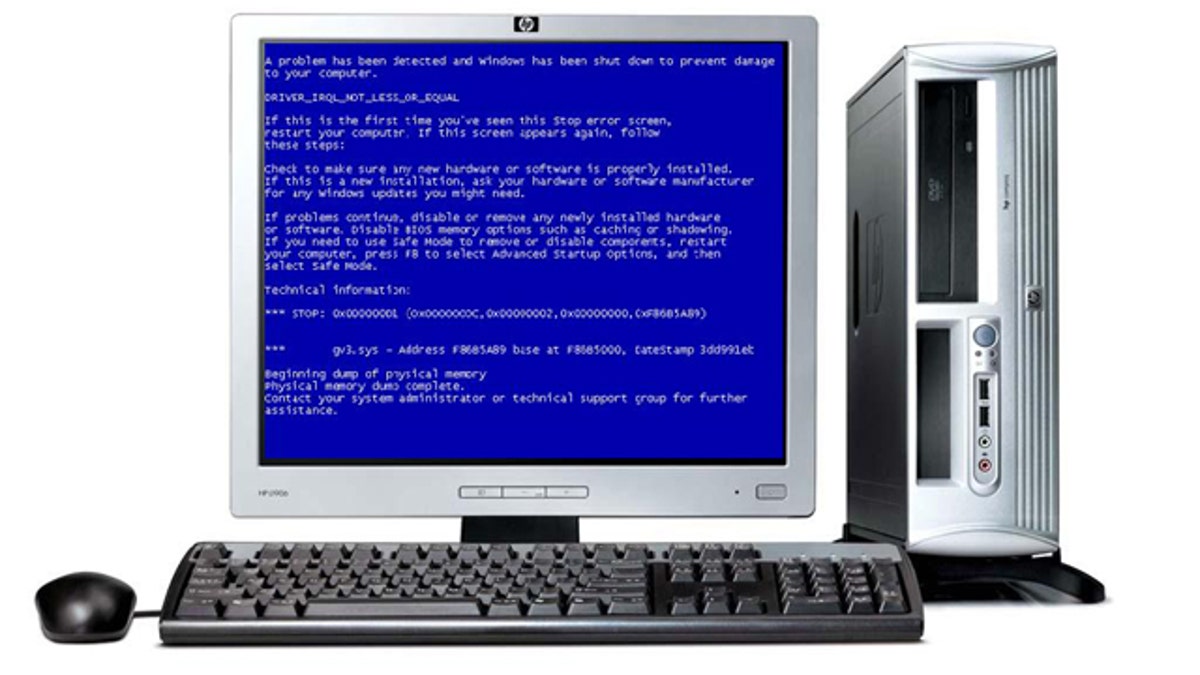
Remember the infamous "Blue Screen of Death"? Well forget it. Now, the entire PC is dead.
It was fun while it lasted, but as of 2011 the era of the desktop computer is officially over.
At least that's the overriding message of last week's gadget and gear extravaganza in Las Vegas known as the Consumer Electronics Show: The PC is dead.
In this iPhone-crazed, connected-TV obsessed, high-speed Internet world, the desktop computer is no longer relevant. All those reams of desk-bound e-mail have given way to terse texts from Blackberries. Those zippy, graphics-intensive games are now the domain of consoles like the Xbox 360 and PlayStation 3.
Even balancing a checkbook has left the PC and gone to the mobile handset. Indeed, just about every type of digital chore and entertainment has moved on from the desktop.
But it shouldn't be a surprise that the desktop's days are over. Most people really never needed a desktop computer.
The vast majority of computer users don't spend days working on CAD engineering programs to create complex 3-D wire frames. Or crunch massive amounts of data to assess the results of a pharmacological assay. Truth be told, most of us have been using PCs to read e-mail and cruise the news. But now, there are better devices for that.
For reading books and magazines, e-readers are far superior to desktops and laptops. Tablets are better at surfing the latest gossip rags online -- just ask the 13 million-plus new iPad owners. Connected stereos and TVs are better at playing digital music from Pandora and movie streams from Netflix. And smartphones are better communicators, unfettering us from our desks so that we can work 24/7 (that's the price of progress).
In fact, smartphones alone are already overtaking desktop PCs. Analysts at research firm Gartner estimate that smartphones will total 1.82 billion by 2013, eclipsing 1.78 billion desktop and laptop computers.
But the analysts may have already underestimated the speed of change. Mobile phones have more than any other device already replaced the desktop computer -- whether they realize it or not.
It's not just a phone, camera and messaging device. Applications ranging from blood pressure monitors to astronomical guides to the skies are now available on hand-held devices. Indeed, there was a time, not long ago, when we reviewed the latest Windows programs for PCs. Today, it's all about sorting through the weekly bevy of new apps -- programs for phones, not for desk-bound machines.
Consequently, this year will see increased emphasis on the performance of smartphones. We're over the initial blush of gadget lust. Consumers want more than just a shiny case. So expect an emphasis on processor speeds (1 gigahertz, dual core!) and high-speed connections (4G!) in smartphones.
In fact, several companies plan to treat smartphones like portable computers by offering docking stations that link the phones to to full-size keyboards and big monitors. To get past the storage limitations, fast wireless connections to the Web will be increasingly important as we rely more and more on online servers, so-called cloud computing, to store our songs, movies, books, pictures and the other digital detritus of everyday life.
But mobile phones are only partially responsible for the demise of desktop and laptop computers. What's happened is that everything else has become a computer now.
Video game consoles are computers in the living room, as are set-top DVRs and devices for streaming movies like Roku. Indeed, many TVs come with Internet connections and built-in services like Netflix -- and Intel chips embedded in their backsides. The same goes for cars. Mapping programs, once the domain of AAA triptychs and desktop computers running Mapquest, have been replaced by navigation systems. Just get behind the wheel and plug in the address.
The trend away from desktops was palpable at CES. Sure there were a handful of computer companies like Hewlett-Packard still building solid, faster, less expensive and more eco-friendly PCs, but the resources of most companies were focused on smartphones and tablets.
An informal count after a couple of days at CES brought the number of different tablet computer models planned for this year to 50. There haven't been that many plans for a particular type of new device since the great PC clone wars of the eighties.
Will we miss the desktop PC? Probably not. Tablets, smartphones and other "computers" represent a different usage model. Sure, some folks will try to touch type on an iPad and others will bring them to the ski hill (heck, I've seen ski bunnies using them at the bottom of the chair lift already), but that's not the point. They really are different devices, designed to be shared and tossed on the couch like remote windows onto the Web.
Doubtless, there will always be those of us who need to run complex formulas on massive spread sheets, crunch numbers, program databases, fold proteins, animated movies and write lengthy critiques. So for us, a desktop or laptop computer will be the state-of-the-art tool of choice.
But for everyone else -- and for nearly every other use -- the computer has moved on.
Follow John R. Quain on Twitter @jqontech or find more tech coverage at J-Q.com.
